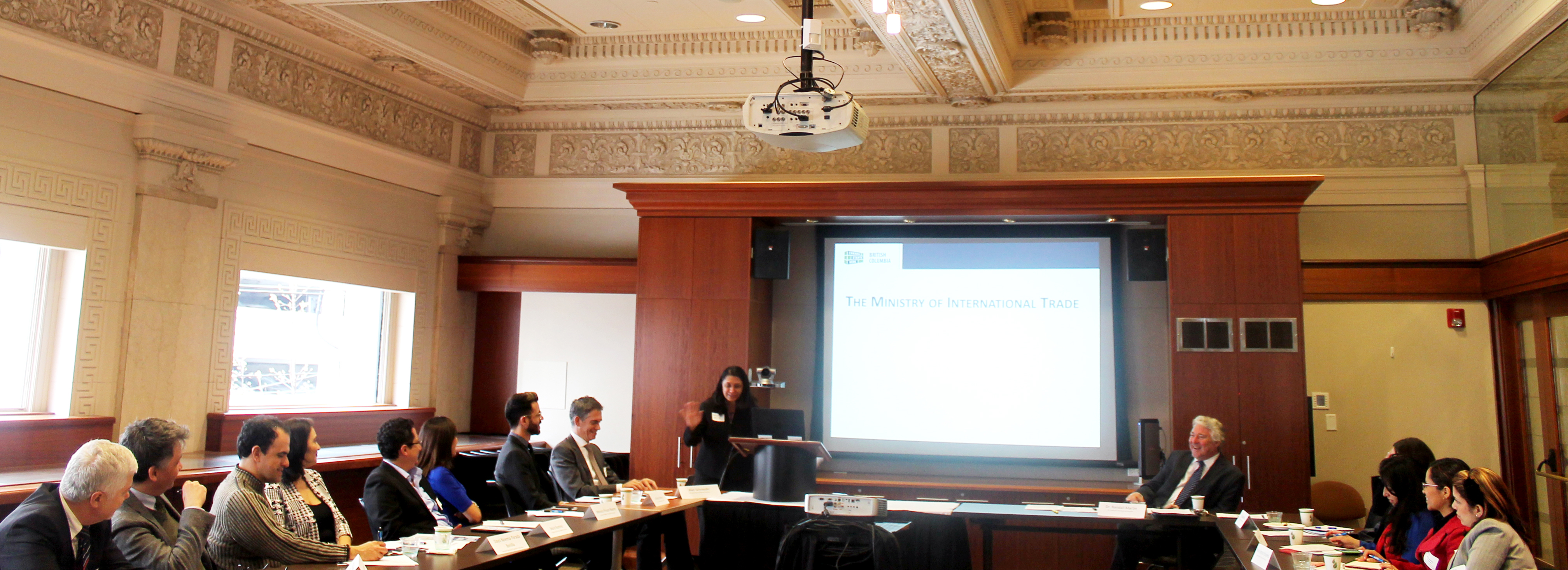Latin America education roundtable sparks discussion on partnerships
On April 6, The British Columbia Council for International Education (BCCIE) hosted a roundtable discussion on the opportunities for enhanced bilateral and regional academic collaboration between British Columbia and Latin America. With participation of the Latin American representatives from BC Consular offices and working-level representatives of British Columbia’s Ministry of Education, Ministry of Advanced Education and Ministry of International Trade, the event represented an informal, fact-finding meeting intended to start a conversation on how to introduce initiatives and education ties between schools and districts, post-secondary institutions, and organizations in Latin America with their counterparts in BC.
One participant poetically referred to the Andes and the Rockies as a shared backbone of one body, the Americas, and that we are natural partners for hemispheric collaboration. Common goals of increased two-way mobility were prevalent in the discussion, but the roundtable also exposed issues and opportunities unique to regions and countries in Latin America. For example, Brazil expressed a desire for visual arts fields and clean tech, whereas Costa Rica spoke to the popularity of Peace Studies (and the Peace University inspired by Oscar Arias Sanchez) as well as Earth Studies (i.e., rainforest sustainability and eco tourism) and an interest in engaging with and for indigenous peoples, First Nations and Aboriginal students throughout the Americas.
Colombia commented on the success of its BC offshore school in Antioquia, sparking enthusiastic discussion amongst other participants about the potential for a similar model elsewhere in the region.
The affordability of Latin American countries for Canadian students was highlighted. BC students could receive education of comparable quality to traditional study abroad locations at reduced costs by choosing Latin America.
There was also consensus on the value of short-term youth exchanges similar to the existing BC-Beijing Summer Camp that fosters intercultural competence from a young age.
Next steps
A follow-up roundtable will be held in the upcoming months. Conversations will continue at a working level, and it is hoped that soon senior BC government representatives will also be invited to engage. The next roundtable will include discussion on two-way student mobility models, funding and potential, and will stress the need to encourage more interest among and opportunity for BC students to study in Latin America.
Commentary:
“This roundtable represents the beginning of a conversation on educational cooperation between BC and Latin America. BC’s focus on Latin America has not been at the forefront and we can do a better job. Through this discussion, and those that follow, we hope to identify areas of new or enhanced cooperation and the opportunity for the two-way mobility of students and scholars.” – Dr. Randall Martin, Executive Director, BCCIE



